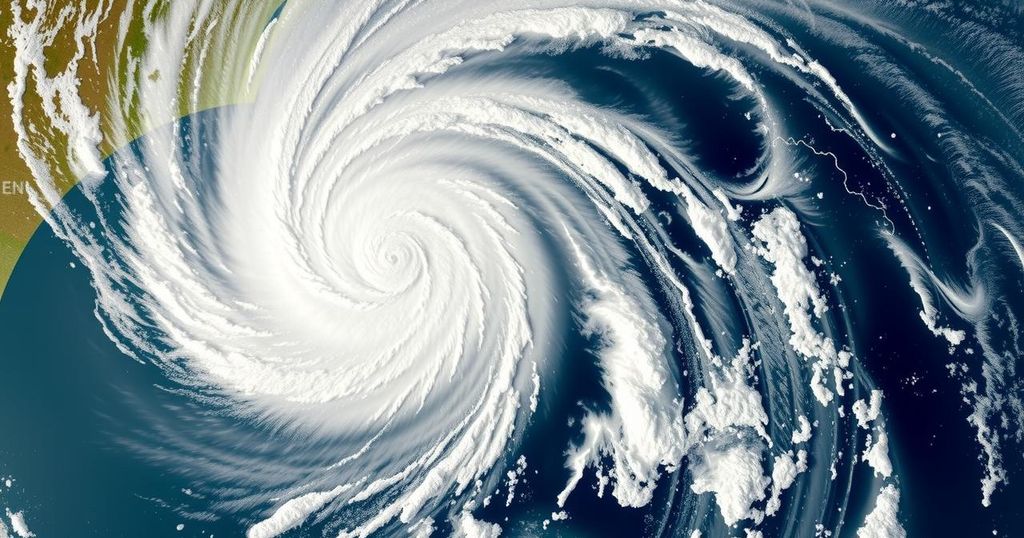Tropical Cyclone Chido struck Mozambique on December 15, resulting in 45 deaths and impacting 184,000 individuals in Mozambique, with an additional 45,162 affected in Malawi. Ongoing assessments and relief distributions are being undertaken to provide essential aid to affected communities amid the widespread destruction of homes and infrastructure.
Tropical Cyclone Chido made landfall in Mozambique on December 15, 2024, causing widespread devastation, particularly in Cabo Delgado and Nampula provinces. The cyclone has claimed the lives of 45 individuals and affected approximately 184,000 others. In Malawi, the impact of Cyclone Chido has resulted in 45,162 people being affected and 13 reported fatalities. Humanitarian partners are currently conducting assessments in the regions and delivering essential supplies to the hardest-hit areas.
The National Institute for Natural Disaster (INGD) reports that 493 people have sustained injuries and over 35,000 houses have been destroyed or significantly damaged due to the cyclone’s severe winds, which reached speeds of 260 km/h. Furthermore, 48 health facilities and 149 schools have been damaged in Mozambique. The province of Cabo Delgado has been the worst affected, with 128,000 individuals impacted.
Cyclone Chido initially formed as a tropical depression in the southeastern Indian Ocean Basin on December 7 and reached Category 4 strength before weakening to Category 3 on December 13. Following its landfall in Mozambique, Chido traversed Malawi and re-entered Mozambique, eventually dissipating near Zimbabwe.
In Mayotte, the cyclone has caused damage as well, resulting in 22 deaths and 1,373 injuries, including 45 individuals in critical condition. The city is currently under curfew to prevent looting as recovery efforts progress, though vast areas remain without access to drinking water due to severe infrastructural damage.
Ongoing response efforts prioritize food, clean water, sanitation, and shelter assistance to support affected communities as they begin the arduous journey of recovery from this natural disaster.
Urgent action and support from humanitarian organizations are essential in addressing the overwhelming needs arising from Tropical Cyclone Chido, as affected populations strive to rebuild their lives in the aftermath of this calamity.
Tropical Cyclone Chido originated from a tropical depression that developed in the Indian Ocean Basin in early December 2024. As it progressed westward, it intensified into a Category 4 cyclone before making landfall in Mozambique. The cyclone has had severe effects on infrastructure, health services, and local communities in Mozambique, Malawi, and Mayotte, leading to loss of life, injuries, and significant displacement of people. Humanitarian assessments are currently ongoing to address the urgent needs of the affected populations.
In summary, Tropical Cyclone Chido has wreaked havoc across Mozambique and Malawi, resulting in significant loss of life and widespread devastation. Relief efforts are currently underway to provide essential supplies and support to the millions affected. The situation highlights the urgent need for humanitarian assistance and coordinated recovery efforts to address the extensive challenges faced by those impacted by this disaster. Addressing water and sanitary needs remains a pressing priority for authorities in the affected regions.
Original Source: reliefweb.int







